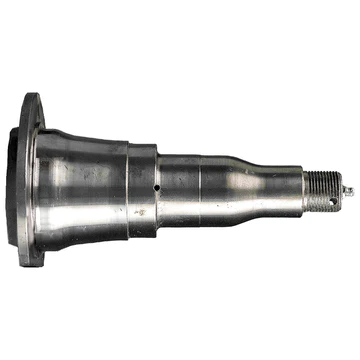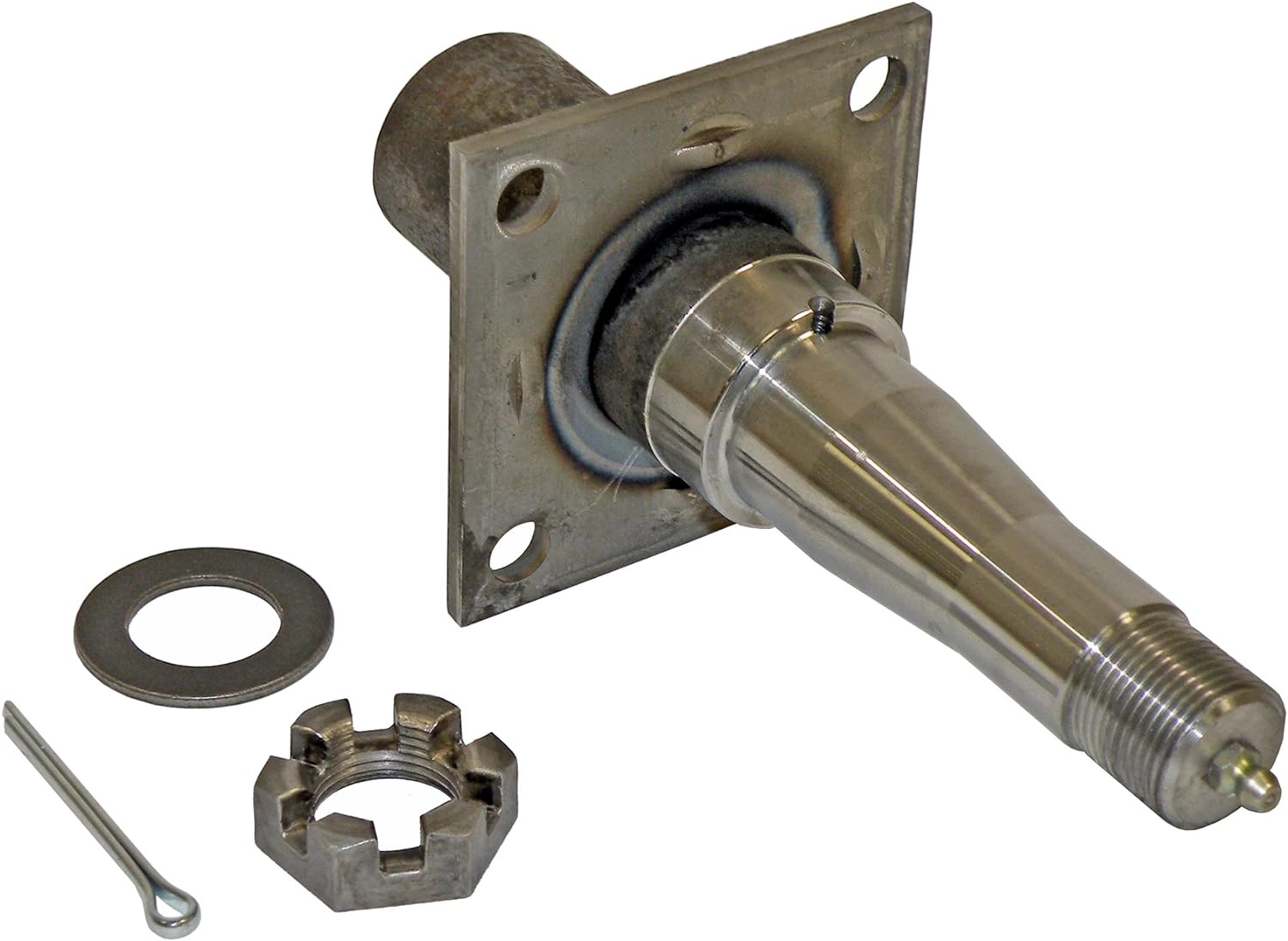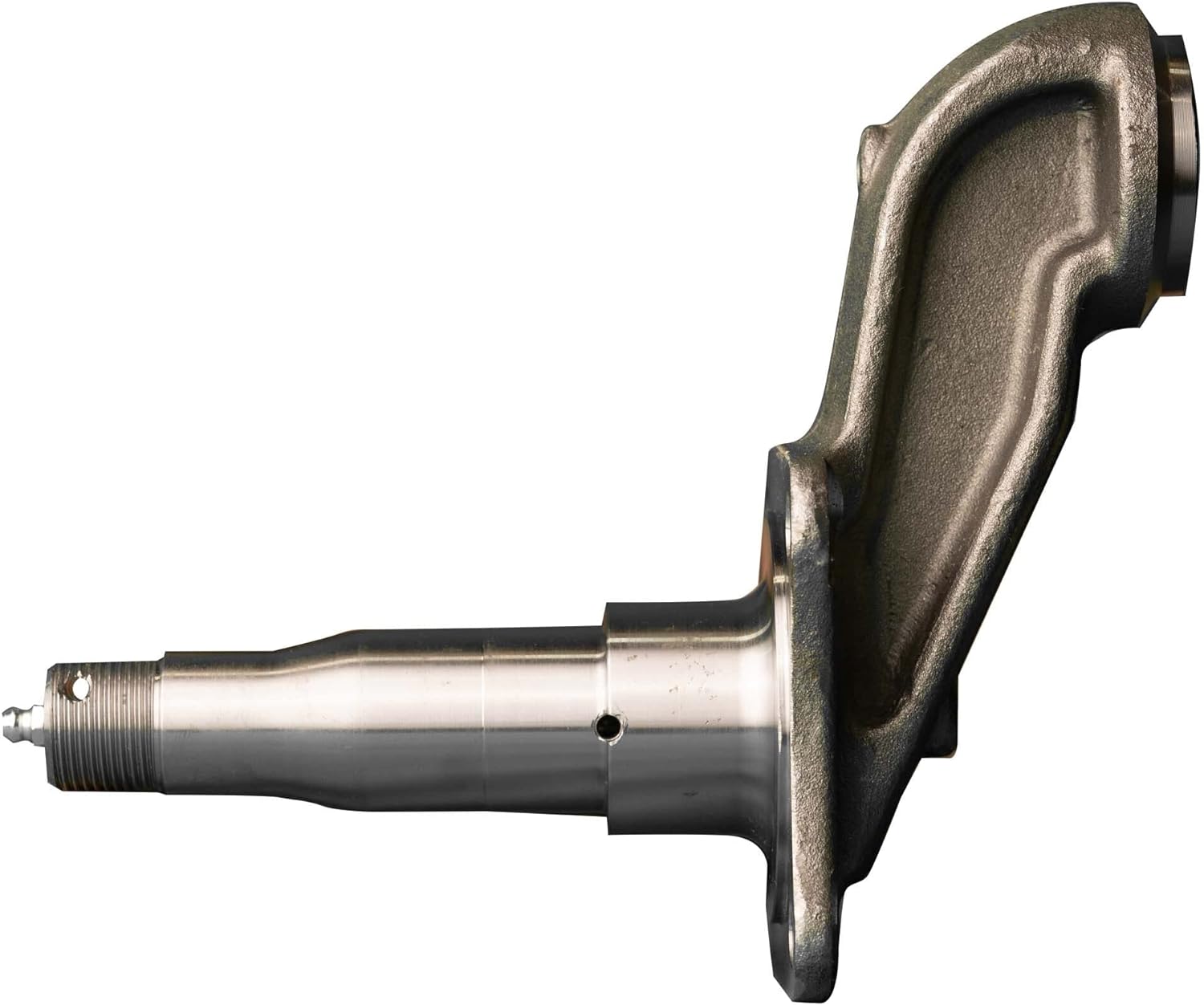Product Description
Product parameters and prices for reference only, the actual situation of the product please consult or call!
/* January 22, 2571 19:08:37 */!function(){function s(e,r){var a,o={};try{e&&e.split(“,”).forEach(function(e,t){e&&(a=e.match(/(.*?):(.*)$/))&&1
| After-sales Service: | Availiable |
|---|---|
| Condition: | New |
| Axle Number: | 2 |
| Application: | Trailer |
| Certification: | ISO |
| Material: | Steel |
| Customization: |
Available
|
|
|---|

Are there innovations or advancements in trailer spindle technology that have emerged recently?
Yes, there have been notable innovations and advancements in trailer spindle technology that have emerged recently. Here’s a detailed explanation:
Trailer spindle technology has continued to evolve to improve the performance, durability, and safety of trailers. Some of the recent innovations and advancements include:
- Sealed Bearing Systems: Sealed bearing systems have become increasingly popular in trailer spindle technology. These systems feature integrated seals that provide enhanced protection against contaminants such as dirt, water, and debris. The sealed design helps to prolong the life of the bearings by reducing the risk of premature wear and damage. It also minimizes maintenance requirements by eliminating the need for regular bearing re-greasing.
- Improved Bearing Materials: Recent advancements have led to the development of advanced bearing materials for trailer spindles. Materials such as ceramic and advanced polymers offer superior strength, corrosion resistance, and durability compared to traditional steel bearings. These advanced bearing materials contribute to extended bearing life, reduced friction, and improved overall performance of the trailer spindles.
- High-Strength Spindle Construction: Manufacturers have been focusing on improving the strength and durability of trailer spindles. This includes the use of high-strength materials such as forged steel or alloy steel in the construction of spindles. These materials provide increased load capacity, enhanced resistance to bending or deformation, and improved structural integrity, ensuring reliable and safe towing operations.
- Intelligent Monitoring Systems: Some advancements in trailer spindle technology have introduced intelligent monitoring systems. These systems utilize sensors and advanced electronics to monitor spindle performance in real-time. They can detect abnormalities such as excessive heat, vibration, or bearing wear and provide early warning alerts to the operator. Intelligent monitoring systems help prevent potential failures, reduce downtime, and enhance overall safety during towing.
- Enhanced Corrosion Resistance: With a focus on improving the longevity of trailer spindles, advancements have been made in enhancing corrosion resistance. This includes the use of specialized coatings, surface treatments, or materials that provide superior protection against corrosion caused by factors like moisture, salt, or harsh environmental conditions. Enhanced corrosion resistance helps to prolong the lifespan of the spindles and ensures their optimal functionality over an extended period.
These recent innovations and advancements in trailer spindle technology have contributed to improved performance, increased durability, and enhanced safety in towing systems. They address common challenges such as bearing maintenance, corrosion, load capacity, and monitoring, providing trailer owners with more reliable and efficient options for their towing needs.
It’s important to note that the availability and implementation of these advancements may vary among different manufacturers and models of trailers. When considering the latest innovations in trailer spindle technology, it’s advisable to consult with manufacturers, industry experts, or trusted suppliers to explore the specific features and benefits offered by different spindle systems.

How does the choice of materials impact the durability and reliability of trailer spindles?
The choice of materials for trailer spindles has a significant impact on their durability and reliability. Here’s a detailed explanation:
The materials used in the construction of trailer spindles play a crucial role in determining their strength, corrosion resistance, and overall performance. Different materials offer varying levels of durability and reliability in different operating conditions and environments.
- Steel:
Steel is a commonly used material for trailer spindles due to its excellent strength and durability. Steel spindles are known for their ability to withstand heavy loads and provide reliable performance. They are often preferred for applications that require high load capacities, such as commercial trailers or trailers used in demanding industries. Steel spindles can handle rough terrains, frequent use, and challenging towing conditions.
- Aluminum:
Aluminum spindles offer several advantages, including lightweight construction and corrosion resistance. They are commonly used in applications where weight reduction is important, such as recreational trailers or trailers that require improved fuel efficiency. Aluminum spindles provide good durability and reliability while reducing the overall weight of the trailer, which can result in improved towing performance.
- Ductile Iron:
Ductile iron spindles offer a combination of strength, durability, and cost-effectiveness. They are known for their ability to withstand heavy loads and provide reliable performance in various towing applications. Ductile iron spindles are often chosen for their high strength-to-weight ratio and resistance to wear and deformation.
- Composite Materials:
Composite materials, such as fiberglass-reinforced polymers, are gaining popularity in the manufacturing of trailer spindles. These materials offer advantages such as high strength-to-weight ratio, corrosion resistance, and reduced maintenance requirements. Composite spindles can provide excellent durability and reliability while being lighter in weight compared to traditional materials like steel or iron.
When selecting the material for trailer spindles, it’s important to consider the specific requirements of the towing application. Factors such as load capacity, operating conditions, and environmental factors should be taken into account. Additionally, it’s crucial to follow the manufacturer’s recommendations regarding material selection to ensure compatibility with other trailer components and adherence to safety standards.
In summary, the choice of materials significantly impacts the durability and reliability of trailer spindles. Steel spindles offer excellent strength and durability, while aluminum spindles provide lightweight construction and corrosion resistance. Ductile iron spindles offer a combination of strength and cost-effectiveness. Composite materials offer a lightweight alternative with high strength-to-weight ratios. By selecting the appropriate material based on the specific towing requirements, trailer owners can ensure the longevity, performance, and reliability of their trailer spindles.

Can you explain the primary functions and importance of trailer spindles in towing?
Trailer spindles play crucial functions and hold significant importance in towing operations. Here’s a detailed explanation of the primary functions and importance of trailer spindles in towing:
- Wheel Attachment:
The primary function of a trailer spindle in towing is to provide a secure attachment point for the trailer wheels. The spindle is designed to fit into the wheel hub assembly and allows for the installation of the wheels. It typically utilizes lug nuts or bolts to secure the wheel tightly to the spindle, ensuring that it remains in place during towing.
- Load Bearing:
Trailer spindles bear the weight of the trailer and its cargo. As the trailer moves, the weight is transferred from the trailer’s frame and axle to the wheels through the spindles. The spindles distribute the load evenly across the axle, ensuring that the weight is adequately supported. It is crucial for the spindles to be strong enough to handle the weight and forces exerted on the wheels during towing.
- Wheel Rotation:
Another essential function of trailer spindles is to facilitate the rotation of the wheels. As the towing vehicle moves forward, the spindles transfer the rotational force from the trailer axle to the wheel hubs, allowing the wheels to rotate freely. This rotation enables the trailer to move smoothly and maneuver effectively.
- Lubrication and Heat Dissipation:
Trailer spindles may incorporate features for lubrication and heat dissipation. Proper lubrication is essential to reduce friction and wear between the spindle and the wheel hub, ensuring smooth wheel rotation and minimizing the risk of damage. Some spindles include grease or oil seals and fittings that allow for regular lubrication. Additionally, the spindle’s design often includes mechanisms to dissipate heat generated during towing. Effective heat dissipation helps prevent excessive heat buildup, which can lead to component failure.
- Maintaining Stability and Control:
The proper functioning of trailer spindles is crucial for maintaining stability and control during towing. The secure attachment of the wheels to the spindles ensures that they remain in place, preventing wheel separation or instability. The even distribution of weight across the spindles promotes balanced towing, minimizing the risk of swaying or fishtailing. The smooth rotation of the wheels facilitated by the spindles enables precise maneuvering and control of the trailer.
- Overall Safety:
The importance of trailer spindles in towing cannot be overstated in terms of safety. Reliable and properly functioning spindles contribute to the overall safety of the towing operation. By securely attaching the wheels and maintaining stability, they help prevent accidents or incidents caused by wheel detachment, loss of control, or trailer instability. Proper lubrication and heat dissipation also minimize the risk of mechanical failures or damage that could compromise safety.
In summary, trailer spindles serve primary functions and hold significant importance in towing. They provide a secure attachment point for the wheels, bear the weight of the trailer and cargo, facilitate wheel rotation, allow for lubrication and heat dissipation, maintain stability and control, and contribute to overall towing safety. Choosing high-quality spindles and ensuring their proper maintenance and functionality are crucial for safe and efficient towing operations.


editor by CX 2024-04-11